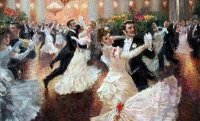Catching up With Richard Schecner
During a recent phone conversation, Greta Aart caught up with Richard Schechner, a guru of the American experimental theater scene. Since the 1960s, Schechner has advocated and created an alternate theatrical space, which he labels as an ‘‘environmental theater.’’ This original notion and practice has had a profound influence upon today’s contemporary understanding of performance.
Presently a Professor of Performance Studies at New York University, he is also the artistic director of East Coast Artists (New York), editor of TDR (The Drama Review), general editor of the Worlds of Performance (Routledge) and co-editor of Enactments (Seagull). His books include Environmental Theater, Between Theater and Anthropology, The Future of Ritual: Writings on Culture and Performance, and Performance Studies—An Introduction, among others.
He founded (or co-founded) The East End Players (Provincetown), The Performance Group (New York), and East Coast Artists (New York), and served as the producing director for The Free Southern Theater (New Orleans). As a theater director, he has directed over 20 professional productions. Many of them are new creations of classic works. He has directed plays in India, South Africa, and China. Today, he is an honorary professor at the Institute of Fine Arts, Havana, and at the Shanghai Theatre Academy where the Schechner Center was inaugurated in 2005.
Schechner’s first Mandarin production was Sun Huizhu’s Mingri Jiuyao Chu Sha (Tomorrow He’ll Be Out of the Mountains) performed in 1989 at the Shanghai People’s Art Theater. In 1995, he directed his own Mandarin (mixed with some Taiwanese) version of Aeschylus’ The Oresteia with the Contemporary Legend Theater in Taipei. In this abbreviated transcription, Schechner and Aart discuss his most recent Chinese production in Shanghai, Hamlet: That Is the Question (2007).
§
Richard Schechner’s 6 Theater Axioms
1|The theatrical event is a set of related transactions.
2|All the space is used for the performance.
3|The theatrical event can take place either in a totally transformed space or in a found space.”
4|Focus is flexible and variable.
5|All production elements speak their own language.
6|The text need be neither the starting point nor the goal of a production.
….There may be no verbal text at all.
Tell me about your production of Hamlet: That Is the Question in Shanghai last summer.
Well, it is going to be difficult talking about the production, since you haven’t seen it yourself. Let’s see—the play was a remake of Shakespeare’s Hamlet that occurred in a large rectangular white space. In it, we put up chairs, bleachers, etc. as seating for the audience in an irregular manner. Like a round theater, but not really round.
The entire space was white. We had white walls made of fabric; we painted all the space for the audience white; we painted the floor white. Only the throne (which was also the grave) platform was covered by a red carpet. On two of these walls we projected live shots of the performance as it was being performed. The throne/grave was a box that opened and was filled with real earth.
Within the white rectangular performance space.
Everything happened inside the space, and everyone was in it. Even the technical people, the cameramen etc. Especially the camera crew who ran the live video cameras. They were not outside overlooking it.
So you can see that these are all features of an environmental theater.
For the play-within-the-play scene in which Hamlet stages ‘‘The Mousetrap’’ to play out the murder/ poisoning of his father, I had it done in jingju (Chinese Opera). The jingju actors were young Chinese children.
What was striking about your directorial choices in this Hamlet?
Well, what was unusual is Hamlet’s homosexuality in the production.
Why?
How can it be otherwise?
Hamlet is not made a king, and he is at least 20 years old. He has a very strained relationship with Ophelia, always very cold towards her. He is somewhat being forced into marriage with her. He taunts her, rather than wooing her. Furthermore, Hamlet is very attached to Horatio, his dear friend and teacher. He is not at all on good terms with his step-father/uncle, Claudius. And his relationship with his mother, Gertrude, is intimate and complicated.
The entire play in itself is dark, full of sex puns and farces.
Also, in this production, I have two Claudius—Claudius the king and Claudius the jester woman. In one close-up scene on the throne platform, Claudius even undresses himself, like in a scene from The Emperor’s New Clothes. He was otherwise dressed in the Chiang Kai-shek’s style. This ‘’defamation of clothes’’ also happens to the jester woman, who undresses herself at some point. The Queen also rips herself of her costumes. And the mob dancers.
Did you also stage Hamlet some years ago in New York?
Yes, that was in 1999 at the Performing Garage in New York, with African-American actors. But it was different, as in the acting then was more of the conventional style. Also, it wasn’t in Mandarin…
Since this particular Hamlet production is in Chinese and for the Chinese audience, is there any form of cultural translation?
No… there isn’t any translation in whatever context. Some fragments are in the Shanghai dialect, and some in English. But is is 95% or more in Mandarin. All in all, it is a modern huaju (Chinese spoken drama).
How did the public respond? Was their understanding of the environmental theatre somewhat theoretical?
No, not at all. They were very open about it. As you know, environmental theater is in practice very straightforward, simple and direct to understand or experience.
Have any aesthetics changed in this recent work, as compared to your previous ones?
No… I don’t think anything has changed. It is another play in an environmental theater.
What is difficult about this production? And its entire process?
Difficult? No, not really. I mean, every production IS difficult. There wasn’t any particular difficulty about Hamlet in Shanghai. The Chinese actors were very well-trained. I had a pleasant time working there.
I know you’re going to have a very packed year ahead, as usual. Tell me about your current artistic work and life…
Yes, I’m going to be busy in the coming spring. Next year marks the 100th anniversary of Jerzy Grotowski, so I’ll be curating all the Grotowski-related events in New York. In March, I’m traveling to Paris to talk about theater and anthropology at Musée Quai Branly.
As usual, I am editing TDR, and teaching at NYU. I’m teaching two courses; one of them is a course on Law and Performance, as you know… And of course, I have this Hamlet production that is going on a tour soon…
With so many activities and travels going on, writing is very difficult. I can’t find the space to block out everything for it… You see, I just can’t seem to be able to retire! I can’t stop creating or working, otherwise I’ll become very depressed!
The last time we met (which was in 2004), you mentioned the desire to return to creative writing. You wanted to write a novel. What happened to this idea?
I just have no time! …Later in this life, or in the next one, maybe.







